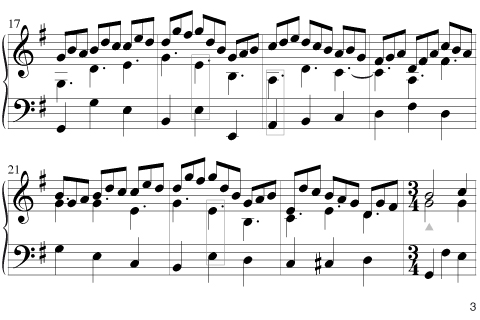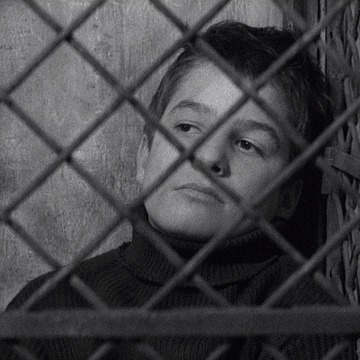
Some classical music with no obvious, overt connection to the holiday has nonetheless become associated with Christmas over the years—at least in the United States. Bach has a Christmas Oratorio, but his choral movement known as “Jesu, Joy of Man’s Desiring” also seems to have become something of a Christmas tune (as well as a popular piece for weddings).
Jesu, Joy of Man’s Desiring is the English title of the 10th movement of the cantata Herz und Mund und Tat und Leben, BWV 147 composed by Johann Sebastian Bach. A transcription by the English pianist Myra Hess (1890–1965) was published in 1926 for piano solo and in 1934 for piano duet.[1] The British organist Peter Hurford made his organ transcription for the chorale movement as well. Today, it is often performed at wedding ceremonies slowly and reverently, in defiance of the effect suggested by Bach in his original scoring,[2] for voices with trumpet, oboes, strings, and continuo. Written during his first year in Leipzig, Germany, this chorale movement is one of Bach’s most enduring works. (via Wikipedia.)
It is, or at least can be, stately, beautiful, serious but also full of joy. You can see why people like it for occasions such as weddings and Christmas. The Windham Hill version is pretty much my favorite version as a “holiday” song:
David Qualey, “Jesu, Joy of Man’s Desiring” – from A Winter’s Solstice
The numerous other versions available can vary greatly in appeal:
“Jesu, Joy of Man’s Desiring” – a traditional version- a version with English lyrics
Jay C. Wingard – from Christmas CollectionDaniel Ho, from his album, Christmas Ukelele Stylean organ version- a version on cello with choir
Sarah Brightman also included a version on her album, A Winter Symphony.
For more…
- Jesu, Joy of Man’s Desiring – Wikipedia
- If you liked the ukelele version, these albums have all the Christmas standards performed on that instrument: Hawaiian Style Christmas 2
and An Ukulele Christmas
. And you can check out other albums by Daniel Ho.
- Bach: Voices Of Angels – Amazon
- Bach Cantatas – Ton Koopman, Amsterdam Baroque Orchestra & Choir – Amazon
- A Winter’s Solstice: Windham Hill Artists
Filed under: Song of the Day, Bach, Christmas, classical, holidays, music




 BBC Radio 3 to broadcast classical album chart
BBC Radio 3 to broadcast classical album chart
